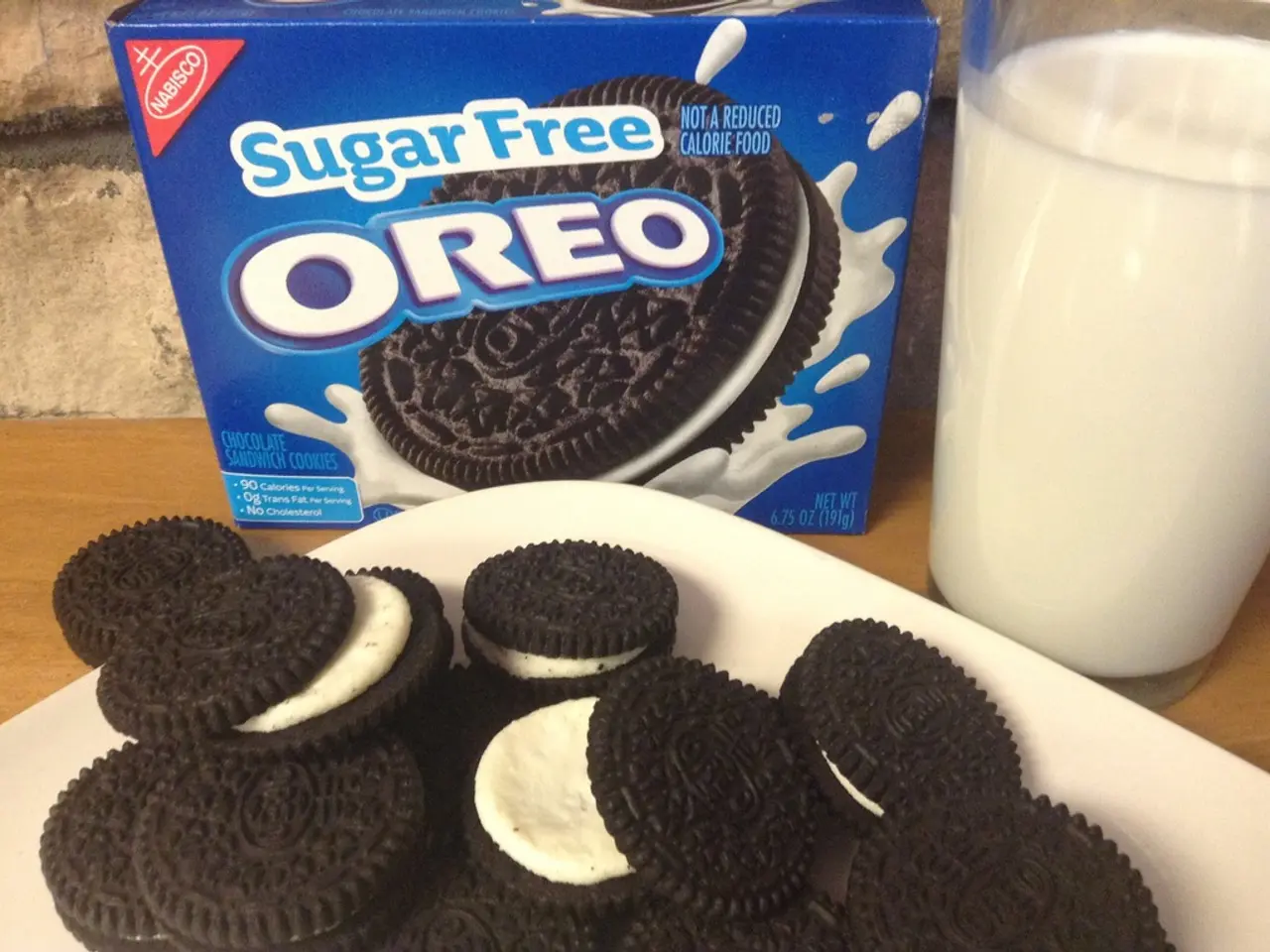Imported biscuit dominance is facing a decline due to the rising popularity of local alternatives.
On an Autumn afternoon in 2020, Nusrat found herself at the DCC Market in Gulshan, ready to buy weekly groceries. For a long time, local biscuit options lacked variety, and foreign brands like Oreo and Dewberry were the go-to choices for many Bangladeshis. However, the scene has changed significantly in recent years.
Today, the local scene offers real alternatives to foreign biscuits. Brands like Bellame's Cremo and Ifad's Biscoff are attempting to replicate the taste of popular foreign brands, while maintaining affordability. Cocola's The Real Chocolate Roll, for instance, has become a cost-effective substitute for foreign wafers.
The price increase of foreign biscuits has been a trend building over the past five years. Prices of foreign biscuits, such as Oreo and Dewberry, had significantly increased to around Tk135 to Tk150. In contrast, the launch of larger packs of local biscuits costs between Tk40-50.
This shift towards local brands is not just a result of cost-effectiveness. The rise in the cost of living has accelerated the shift, as foreign products like Hide & Seek, Julie's, Munchies, and Dark Fantasy become increasingly expensive.
Local companies have begun to tailor flavours specifically for Bangladeshi palates. North End Coffee Roasters played a crucial role in popularising cookies in Dhaka, and the team behind successful local biscuit brands have studied consumer behaviour and launched choco-filled and cream sandwich biscuits based on preferences.
The importance of proper branding, good packaging, and understanding the local taste was emphasized by M Rashidul Arefin, Account Director at Grey Advertising Bangladesh. Olympic's Nutty Biscuit, originally released in 2014, gained popularity among young office workers around 2022, demonstrating the impact of effective branding and packaging.
Olympic, Bellame, Cocola, and others have realized that packaging is more than just a box; it's the first impression. They have invested in modern packaging designs to attract consumers. Moreover, they have built strong distribution networks to compete with foreign brands' market reach.
Local brands have also expanded their product ranges to include premium, specialty, and health-conscious biscuits, similar to trends seen in developed markets. Premium biscuits like Sweet Fantasy are priced at around Tk150, offering consumers a taste of luxury without the high price tag of foreign brands.
The New Zealand Dairy 'Crush Biscuit' has a lemon variant inspired by a Japanese brand, but it was researched and reworked for local consumers. This adaptation to local tastes and preferences is a key factor in the growth of the local biscuit market in Bangladesh.
Enhanced food safety and quality standards in local manufacturing have boosted consumer confidence, further fuelling the growth of the local biscuit market. The monthly earnings of the local biscuit brand from biscuits alone are Tk250-280 crore, a testament to the market's significant growth.
While detailed Bangladesh-specific data is not fully covered in the search results, parallel trends observed in other countries' biscuit markets suggest that the focus on product innovation and branding by local firms is key to competing with international players. These approaches likely apply in Bangladesh as well, where local tastes and consumer preferences heavily influence competitive dynamics.
In conclusion, the local biscuit market in Bangladesh has grown significantly in recent years due to rising domestic demand, increasing consumer awareness of health and quality, and improved local production capacity. Local brands have adapted by innovating product offerings and enhancing packaging and marketing to compete effectively with foreign brands.
- The local biscuit industry in Bangladesh has been innovating, with brands like Bellame's Cremo, Ifad's Biscoff, Cocola, and others replicating the taste of popular foreign biscuits while maintaining affordability.
- The growing demand for local brands extends beyond cost-effectiveness, as the increase in the cost of living has accelerated the shift, making foreign products like Hide & Seek, Julie's, Munchies, and Dark Fantasy increasingly expensive.
- Local companies have been tailoring flavors specifically for Bangladeshi palates, with North End Coffee Roasters playing a crucial role in popularizing cookies in Dhaka.
- The local biscuit market has seen a focus on premium, specialty, and health-conscious options, similar to trends in developed markets, with products like Sweet Fantasy priced at around Tk150, offering a taste of luxury without the high price tag of foreign brands.




